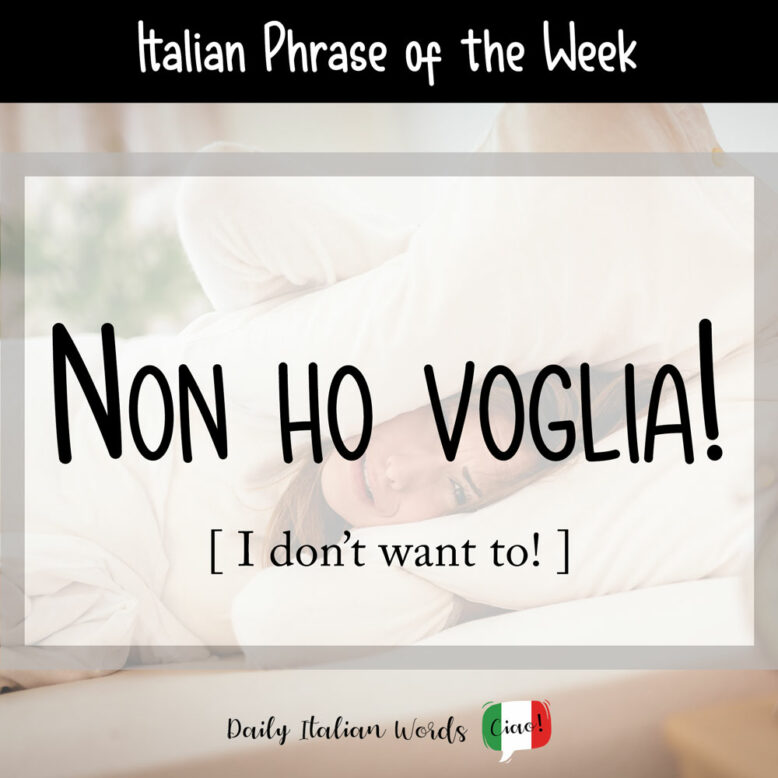If you want to tell someone that you don’t want to do something in Italian, there is a very simple phrase you can use that consists of just three words: Non ho voglia.

Non is an extremely common adverb of negation in Italian. In this particular phrase, it translates as do not or don’t in English, but it can also translate as:
- cannot / can’t (e.g. non posso = I can’t)
- will not / won’t (e.g. non andrò = I won’t go)
- have not / haven’t (e.g. non ho visto = I haven’t seen)
- did not / didn’t = (e.g. non andai = I didn’t go)
- and many more…
Voglia is the word for desire or will in Italian but, paired with the verb avere (to have), it is often used as a substitute for the verb volere (to want).
Here is the full conjugation of avere + voglia in the present tense:
avere + voglia = to want (lit. to have the desire)
(io) ho voglia = I want
(tu) hai voglia = you want (informal)
(lui) ha voglia = he wants
(lei) ha voglia = she wants
(Lei) ha voglia = you want (formal)
(noi) abbiamo voglia = we want
(voi) avete voglia = you want (plural)
(loro) hanno voglia = they want

More informally, you will also hear people say non c’ho voglia. The c’ is an abbreviation of ci, a word with multiple identities (adverb, pronoun) which can be used in different ways in Italian. In this case, it is an adverb that acts as a generic intensifier.
Vuoi venire? – No, non c’ho proprio voglia.
Do you want to come? – No, I really don’t want to.
Another possible want to say I don’t want to in Italian is non voglio, using the verb volere, but in this case, it is often followed by another infinitive verb specifying the action that you don’t want to do. For example:
Non voglio farlo.
I don’t want to do it.
Non voglio andarci.*
I don’t want to go there.
*Note: Here is another usage of ci. In the phrase above, it is affixed to the end of the verb andare (to go) and indicates the place that is referred to in the conversation.
Other examples where ci indicates the location are:
Eccoci qui! = Here we are!
Torino è stupenda. Torniamoci presto! = Turin is splendid. Let’s go back there soon!

Heather Broster is a graduate with honours in linguistics from the University of Western Ontario. She is an aspiring polyglot, proficient in English and Italian, as well as Japanese, Welsh, and French to varying degrees of fluency. Originally from Toronto, Heather has resided in various countries, notably Italy for a period of six years. Her primary focus lies in the fields of language acquisition, education, and bilingual instruction.


